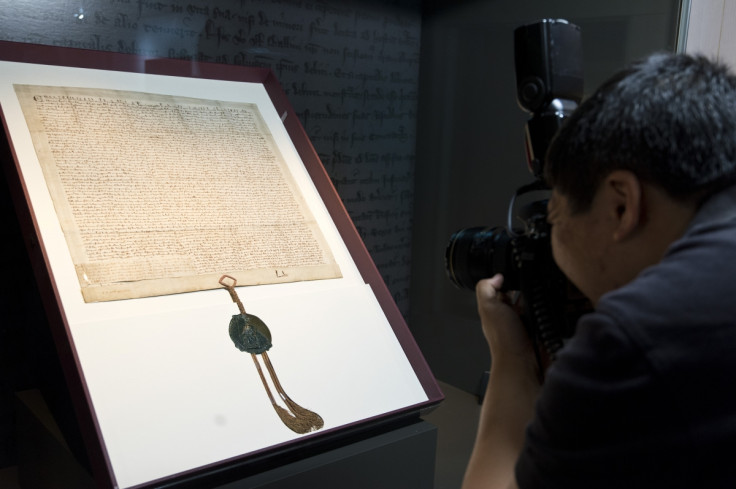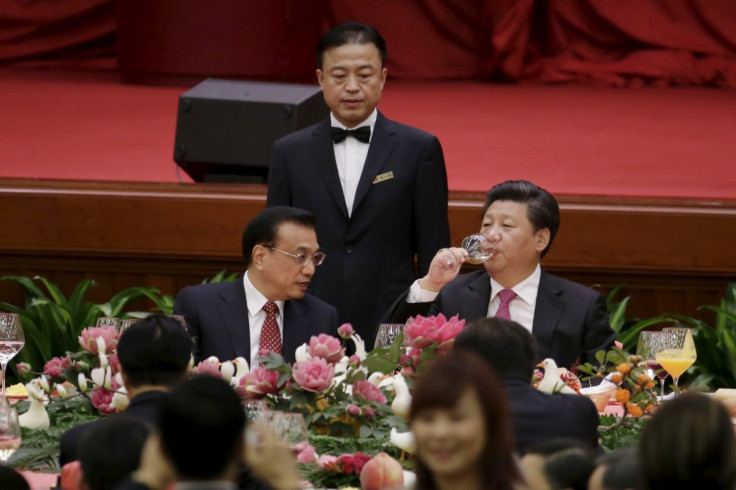Controversy as plans to exhibit Magna Carta at a Beijing University shelved at the last minute

The Magna Carta's tour of China this week began in controversy, after plans to show the 800 year-old text at a university were cancelled at the last minute. The document is on an international tour to celebrate its eighth centennial with the text expected to be placed on public display in Beijing, Guangzhou and Shanghai.
The Hereford Cathedral's 1217 version of the internationally celebrated text was supposed to go on view this week in Beijing's Renmin University. But at the last minute the decision was made to confine the parchment to the more private and secure house of the British Ambassador.
The move meant that a very limited number of guests were able to view the landmark text. And the shelving of plans to show the "the Great Charter", comes amid speculation that the text may foster unwelcome ideas into the minds of Chinese students. Officially the Foreign and Commonwealth office said that the decision was made "based on administrative and logistical practicalities".
An FCO spokesman said in The Telegraph: "We made the decision to display the Magna Carta at the residence based on administrative and logistical practicalities.The residence is both a fitting and practical location for this wonderful event – as a small piece of the UK in China it is an appropriate venue for this important and internationally celebrated document."

Critics would argue that the exhibition comes at a time when China's "Rule of Law" faces increasing scrutiny from its citizens after crackdowns on NGO groups, media freedoms and liberal intellectuals whilst protecting the state from internal interrogation. In 2014 President Xi Jinping enshrined the Rule of Law into the Chinese Communist Parties fourth plenum.
The authoritarian principle where a state exerts its own power through law rather than itself being subject to those laws, could be seen to be at odds with the values enshrined in the Magna Carta. But the CCP and President Xi say that the fourth plenum allows them to tackle corruption and increase accountability and transparency of government.
The tour is part of the GREAT campaign with the text passing through seven countries, across three continents, travelling a total of 65,000 miles. The documents departed the UK last month and have just finished a tour in New York and Luxembourg. From China they will travel to Singapore, Malta and Portugal.
The Magna Carta was established by angry noblemen in the 13th Century rebelling against King John and gave the people of England unprecedented property rights and protection from a ruling monarch. The Magna Carta is penned in Latin on sheepskin and is seen as a foundational text of Western thinking and considered to be one of the first articulations of the rights of the individual.
Chinese officials spoke earlier this week of cementing a "golden era" of Chinese-British relations ahead of Chinese Xi's visit to the UK from October 19 to 23 and George Osborne's recent visit to the Far East. A number of new deals are currently being discussed between the states concerning nuclear power, property, finance, medical treatment and the auto industry will be signed next week.
© Copyright IBTimes 2025. All rights reserved.






















